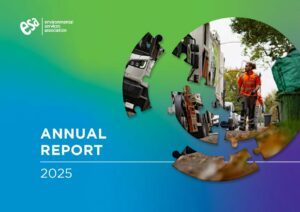Defra has today published “illustrative” base fees setting out what obligated packaging producers will pay in the first year of the new Extended Producer Responsibility (EPR) regime for packaging from 2025.
The publication sets out illustrative fee rates for various packaging materials, designed to reflect the net costs of managing these materials once they have been discarded and once any resale value (ie through recycling) has been taken into account.
Helping obligated producers to prepare for the costs next year, Defra has set out base fees today covering eight materials – aluminium, fibre-based composites, paper or board, plastic, steel, wood, glass and “other”.
It is expected that the fees will be amended and refined as more packaging data is submitted by producers and as the Scheme Administrator is established. Additionally, from the second year of the scheme, the fee rates will be “modulated” to reflect the environmental impact of various packaging materials. However, the ESA has welcomed today’s publication because it offers reassurance to circular economy investors that the EPR reforms will continue on the same trajectory under thew new government.
In response to the announcement, the ESA’s Executive Director, Jacob Hayler, said: “Publication of the illustrative EPR base fees for packaging producers offers reassurance for circular economy investors over the continued direction of travel for resources and waste policy under the new Government. The announcement also provides much-needed clarity to obligated packaging producers to enable them to prepare for the introduction of charging from 2025 – helping to build a more complete picture of the economics of the new regime.
The Resources and Waste Strategy reforms remain essential to delivering progress against binding national recycling targets; to reducing waste; and to delivering green growth – so visible policy progress after a prolonged period of stagnation and uncertainty will undoubtedly boost confidence among the organisations and investors responsible for delivering these outcomes.”




